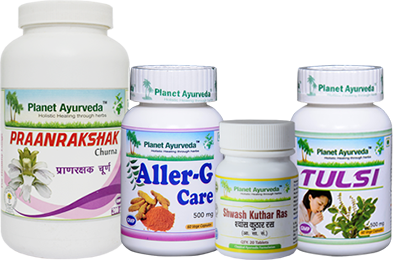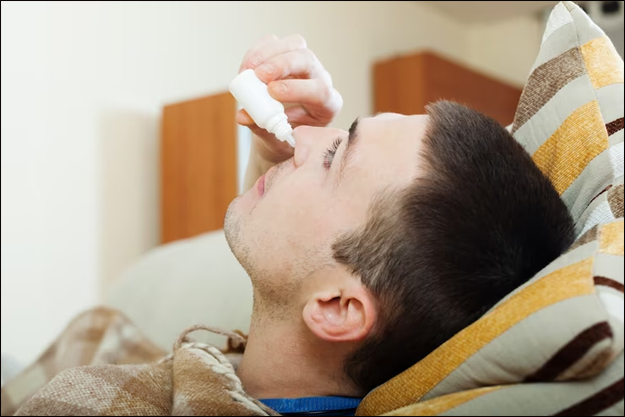How to Prevent Asthma Through Ayurveda – Alternative Medicines
ABSTRACT
Asthma is a very serious illness that affects a very large number of the population. It is a respiratory disorder which has very adverse effects on the patient. The person suffering from asthma will feel difficulty in breathing and in severe cases he/ she may face problems while talking also. Avoiding the triggers of asthma will help to avoid the asthma attacks. Asthma affects the quality of life very badly. The person finds it difficult to remain physically active. The treatment in modern medicine will include various therapies which will ease life up to some extent. Let’s discuss it in detail!
INTRODUCTION
Asthma is a chronic illness which affects people of all age groups especially the children. Asthma is a respiratory disorder that occurs because of inflammatory changes in the airway. The airway to lungs gets inflamed in this condition. Normally the air travels from the nose or mouth to throat and eventually to lungs. There are various air passages that help in transferring the oxygen from the air to the bloodstream. In asthma, the lining of the airways undergo inflammatory changes and swell up. This results in tightening the muscles of the lungs. The person will experience difficulty in breathing. This will result in an asthma attack.

CAUSES
There are various causes and triggers that differ from person to person. There is no known specific cause of asthma identified yet. Some of the factors that are estimated to cause asthma are genetics i.e. family history of asthma, history of infections such as viral infections etc. There are various triggers of asthma. Triggers are the factors that will aggravate the condition. Triggers will differ from person to person. The most common types of triggers are as follows- animal dander (hair), strenuous physical work, respiratory tract infections , extreme emotions, and certain types of medicinal drugs such as aspirin, non steroidal anti inflammatory drugs (NSAIDs).
SYMPTOMS
Wheezing is the most common clinical feature of asthma. The person’s breathing will be accompanied with a whistling sound. The symptoms of asthma will differ from patient to patient. The symptoms that are seen in most of the cases are coughing, abnormal breathing either rapid breathing or shortness of breath. The patient may feel tired very easily. He/ she may experience difficulty in completing the day to day task because of low energy. Asthma may also lead to anxiousness, chest pain and frequent infections. The person experiences difficulty in breathing so he will not be able to sleep properly. The coughing will especially increase at night time or during laughing.
DIAGNOSIS
The diagnosis of asthma will include both, the clinical examination by the doctor and the laboratory investigations. The doctor will observe the signs and symptoms of the patient and if the features suggest asthma then further examinations are advised. The signs and symptoms are described above. The lab investigations will include various lung function tests such as spirometry (it will determine the amount and speed of air flowing in and out from the lungs.) and peak flow, etc. Various other tests performed are chest x- rays, allergy testing, sputum examination, nitric oxide test etc.
TREATMENT
The management of asthma will include prevention and long term control to stop the asthma attacks. The specific medicine regimen will depend on the patient’s age, symptoms, triggers and health status. In general, the treatment will include bronchodilators which are in the form of inhalers that provide instant relief and facilitate easier breathing. Various medications are given orally such as cortico steroids, beta- agonists, theophylline, anticholinergic agents, etc. In some cases, allergy is reported as the main trigger factor. In such cases, the allergy needs to be treated first. So, the allergy medications are prescribed which include immunotherapy, or different types of oral antihistamine drugs.
AYURVEDIC ASPECT
Ayurveda always presents a unique perspective about each concept related to the body. In case of asthma, we can correlate it with tamak shwas. It is a condition caused by the increased levels of kapha dosha, which affects the pranavaha srotas (airway passages). This leads to different types of breathing difficulties such as dyspnoea (i.e. difficulty in breathing), coughing, difficulty in speaking etc. The increased levels of kapha dosha will obstruct the path of vata dosha and will aggravate the condition. Thus, the treatment will include balancing the levels of kapha and vata dosha. The patient feels relieved by the use of hot potency products. The management will include detoxifying the body especially the airways to pacify the vata dosha. There are various types of herbs known to benefit the condition such as licorice (Glycyrrhiza glabra), turmeric (Curcuma longa), pippali (Piper longum), ashwagandha (Withania Somnifera), etc.
HERBAL REMEDIES FOR ASTHMA BY PLANET AYURVEDA
When Ayurvedic herbs are used in pure form and appropriately, they show great results on health. Planet Ayurveda prepares various formulations of natural herbs such as Aller- G care, Praanrakshak Churna, Tulsi Capsules, Shwash Kuthar Ras etc. which are prepared using authentic ways and provide great results in improving the respiratory system of the body. All the herbal products manufactured here are free from chemicals, preservatives, starch, additives, colors and fillers. These products are hundred percent natural and are formulated by MD Ayurvedic doctors with deep knowledge of Ayurveda and many years of experience. The formulations are prepared strictly according to the procedures described in the samhitas (classical texts) and therefore are very effective in promoting health and curing the diseased state.
- Aller-G Care
- Praanrakshak Churna
- Tulsi Capsules
- Shwash Kuthar Ras
PRODUCT DESCRIPTION
1. Aller-G Care
Aller-G Care capsules are prepared by planet ayurveda using the following herbs -Haridra (Curcuma longa), Neem (Azadirachta Indica), Shirish (Albizia Lubbock), Ashwagandha (Withania Somnifera), etc. The combination of these drugs promotes the health of the respiratory system. These help to promote overall health of the body. These show anti- inflammatory effects on the airways and hence facilitate breathing.
Dose: 1-2 Capsules should be given two times a day. The Aller-G Care capsules are given with plain water and after meals.
2. Praanrakshak Churna
Praanrakshak Churna by planet Ayurveda contains Shirish (Mimosa Tree) (Albizia lubbock), Vaasa (Adhatoda vasica), Anantmool (Tylophora asthmatica), Dalchini (Cinnamomum zeylanica), Bharangi (Clerodendrum serratum), Kantkari (Solanum xanthocarpum), Mulethi (Glycyrrhiza glabra), etc. These drugs improve the respiratory system of the body. It soothes the throat and aids breathing.
Dose: This churna is given 1-2 teaspoons three times a day, with plain water after meals.
3. Tulsi Capsules
Tulsi (Ocimum sanctum) has been known to exhibit a variety of medicinal properties since ancient times. The herb of tulsi contains anti- inflammatory properties, gives relief in cold, cough, fever, etc. It improves the immunity of the body and thus improves the overall health of the body. These capsules are prepared from pure extract of tulsi (Ocimum sanctum).
Dose: One to two capsules are given twice a day with plain water.
4. Shwash Kuthar Ras
Shwash Kuthar Ras is prepared with a number of medicinal ingredients such as Maricha Churna (Piper nigrum), Shuddha Parada (Purified Mercury), Shuddha Sulphur (Purified Sulphur), Shuddha Vatsanabha (Purified Aconitum ferox), Shuddha Tankan (Purified Citrus tankan), Shuddha Manahshila (Purified Realgar), Shunthi Churna (Zingiber officinale), Pippali Churna (Piper longum), etc. This combination helps to get relief from, cold, cough, etc. This preparation benefits the condition of asthma as it promotes the overall respiratory health of the patient.
Dose: 1 tablet two times a day.
CONCLUSION
The Ayurvedic principles consider that the causative factor behind shwasa roga related to asthma is the imbalance in the levels of vata and kapha dosha. And as discussed above, the increased levels of kapha will result in obstruction in the path of vata dosha. So, the target of treatment of asthma will be to reduce the levels of kapha dosha. Managing the proper levels of kapha and vata dosha will lead to the healthy state of the body. So, as the Ayurvedic treatment emphasizes on treating the root cause of the condition it is capable of eliminating the disease permanently. In a nutshell, it can be concluded that with appropriate and timely management of kapha and vata levels of the body, asthma can be improved in almost all of the cases leading to better quality of life.





